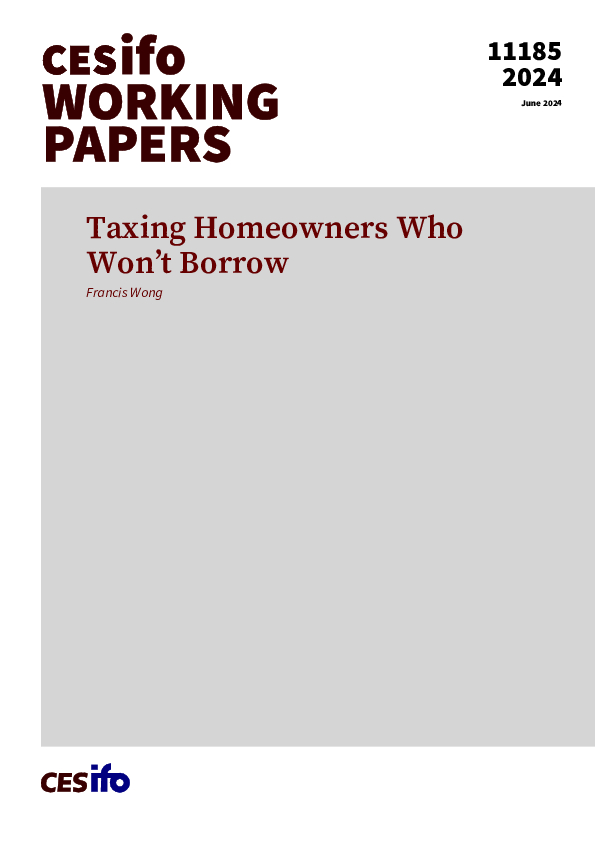Taxing Homeowners Who Won’t Borrow
CESifo, Munich, 2024
CESifo Working Paper No. 11185

Using high-frequency administrative data covering millions of US homeowners, I document three novel facts about homeowner responses to property tax increases driven by rising home values. First, non-migrating homeowners cut consumption, exhibit financial distress, and do not borrow against their higher home values. These responses run contrary to the predictions of frictionless models, in which homeowners should borrow to avoid costly adjustments. Second, heterogeneity analysis shows that consumption responses do not vary by liquidity, consistent with savings target behavior. In contrast, distress responses are concentrated among liquidity-constrained homeowners. Many homeowners report being debt averse and therefore unwilling to borrow in order to avoid illiquidity and distress. Third, tax hikes induce migration—partly by displacing illiquid homeowners—but do not accelerate neighborhood change. A simple welfare framework reveals that the largest costs of property taxes arise from financial distress among liquidity-constrained homeowners.
Public Finance
Behavioural Economics